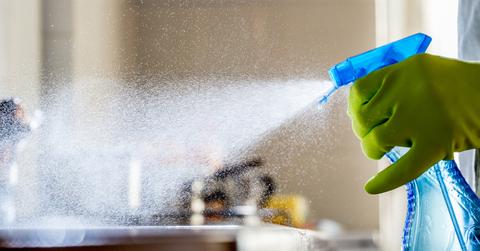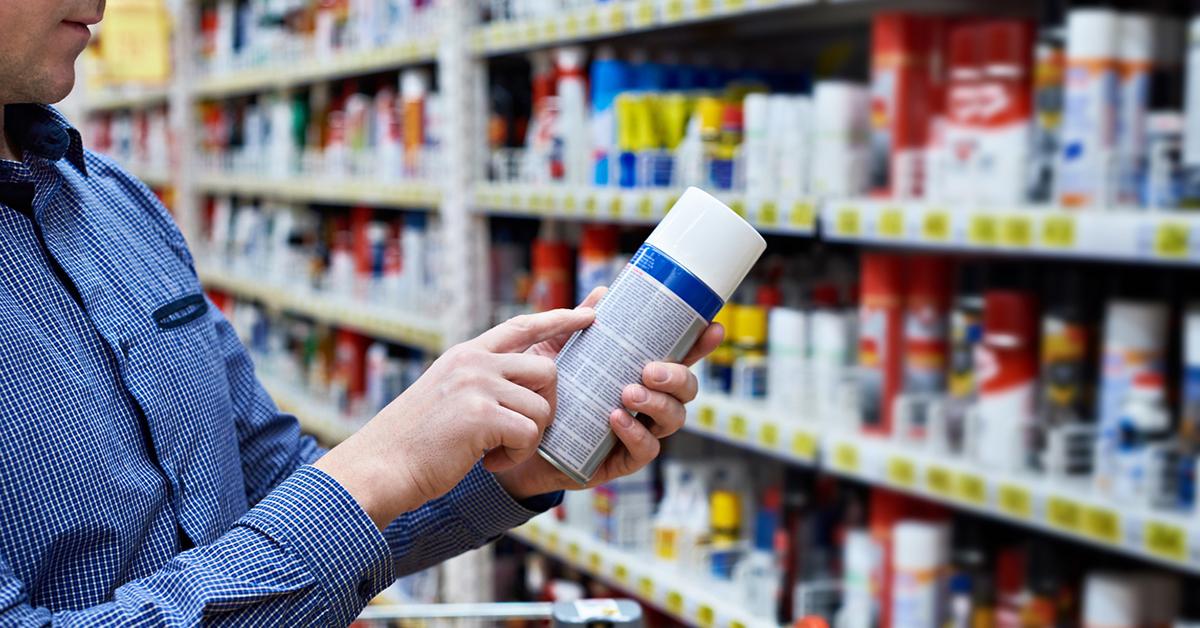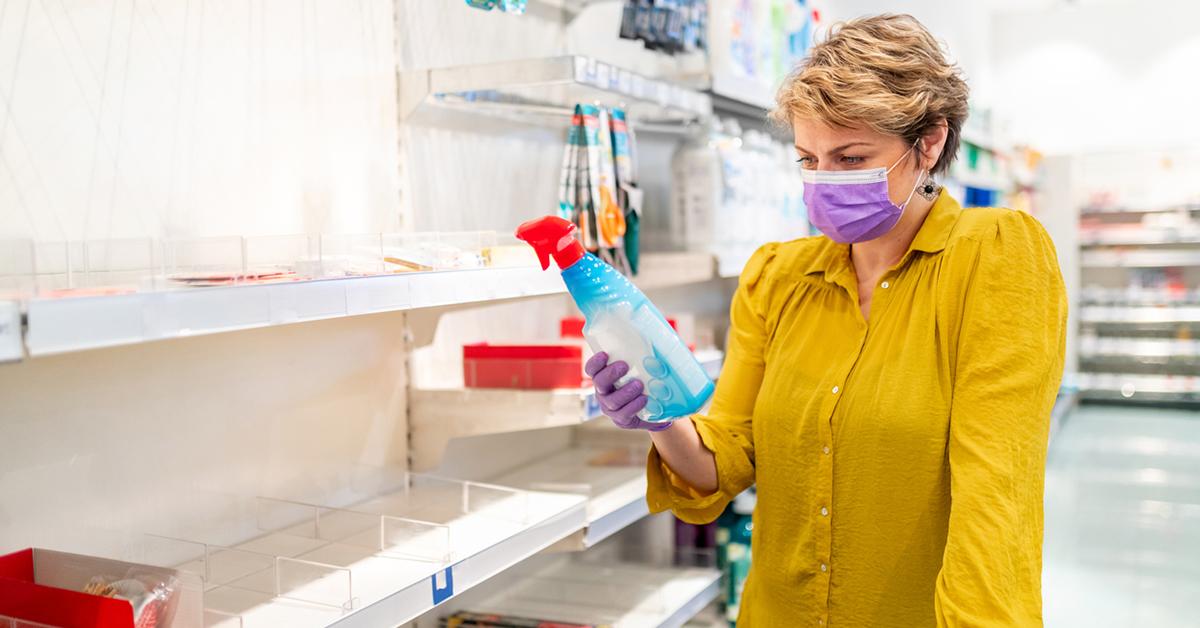These Cleaning Products Are Tough Against Coronavirus, But Gentle on the Planet
Fighting against the virus doesn’t mean you have to make sacrifices.
Updated April 13 2020, 6:15 p.m. ET

As the world continues to fight against the novel coronavirus, you’re probably making changes to your everyday life — whether it means making some sacrifices to your typically zero-waste lifestyle or if it means embracing a more eco-friendly way of living as you learn to make the most of what you have in your home.
Since prioritizing your and your families’ health should remain your priority, the most important thing you should look for when it comes to cleaning products is that it has disinfectants that can take on COVID-19; unfortunately, that means you may be reaching for products with ingredients you'd usually avoid or made with an abundance of plastic.
However, you can still make choices to buy products that are harsh on the virus, but gentle on the planet.
The Environmental Working Group — aka the EWG — put together a list of 16 cleaning products that they deemed both effective and safe in the battle against COVID-19. They were able to compile the list by examining the Center for Disease Control and Prevention’s interim recommendation that “most common EPA-registered household disinfectants should be effective” when it comes to cleaning frequently touched surfaces (such as countertops, sinks, bathrooms, doorknobs, light switches, etc.). As the EWG noted, they used the Environmental Protection Agency’s list of EPA-registered antimicrobial cleaners.

Once they had they had that list, they compared the products against their own Guide to Healthy Cleaning; the Guide evaluates product ingredients and gives different cleaning products a score based on how potentially harmful the ingredients are (an already difficult task, as cleaning products aren’t required to state an ingredient list the way food and cosmetics are).
They then came up with a list of 16 products that not only scored either an “A” or “B” using their own Guide parameters, but are also known to kill viruses that are considered “harder to kill” than the novel coronavirus, COVID-19. The items that made the cut include:
- Clorox Commercial Solutions Disinfection Bio Stain & Odor Remover
- Clorox Pet Solutions Advanced Disinfecting Stain & Odor Remover
- Lysol Hydrogen Peroxide Action Multi-Purpose Cleaner, Oxygen Splash
- Lysol Hydrogen Peroxide Bathroom Cleaner, Cool Spring Breeze
- Lysol Hydrogen Peroxide Multi-Purpose Cleaning Wipes, Oxygen Splash
- Lysol Hydrogen Peroxide Multi-purpose Cleaner, Citrus Sparkle Zest
- Lysol Power Bathroom Cleaner, Island Breeze
- Purell Multi Surface Disinfectant, Fragrance Free
- Seventh Generation Disinfectant Spray, Eucalyptus, Spearmint & Thyme
- Seventh Generation Disinfectant Spray, Lavender, Vanilla & Thyme
- Seventh Generation Disinfectant Spray, Fresh Citrus & Thyme
- Seventh Generation Disinfecting Bathroom Cleaner, Lemongrass Citrus Scent
- Seventh Generation Disinfecting Multi-Surface Cleaner, Lemongrass Citrus Scent
- Seventh Generation Disinfecting Wipes, Lemongrass Citrus Scent
- Windex Multi Surface Disinfectant Cleaner
- Windex Multi Surface Disinfectant Cleaner, Glade Rainshower
Given the current circumstances of stay-at-home orders, and many stores selling out of cleaning supplies and other virus-fighting necessities, it may not be easy to get your (clean, freshly washed) hands on the “best” products — and, of course, staying safe and healthy is the most important. So the EWG also gave guidance on what you should do if you can’t get one of their best-ranked cleaning products.

Per the Environmental Working Group, if you aren’t able to buy their suggestions, they encourage you to look for cleaning agents made with specific active ingredients — such as hydrogen peroxide, ethyl alcohol (ethanol), citric acid, L-lactic acid, caprylic acid (octanoic acid), and thymol — all of which are lower in toxicity.
Additionally, they advise against cleaners made with sodium hypochlorite (which is harmful to not only the environment, but also to the skin and respiratory system) and quaternary ammonium compounds, aka quats. Quats can be toxic if inhaled, and also known to cause birth defects, and is toxic to marine life if it enters the waterways.
As the outbreak of COVID-19 continues to spread, and take more and more lives, many people have attempted to make their own disinfectant — with natural ingredients, such as vinegar; but to make sure you are doing the best you can for yourself and your family, consult the CDC’s recommendations for antibacterial options.
The best way to prevent contracting or spreading coronavirus is with thorough hand washing and social distancing. If you feel you may be experiencing symptoms of coronavirus, which include persistent cough (usually dry), fever, shortness of breath, and fatigue, please call your doctor before going to get tested. For comprehensive resources and updates, visit the CDC website. If you are experiencing anxiety about the virus, seek out mental health support from your provider or visit NAMI.org.